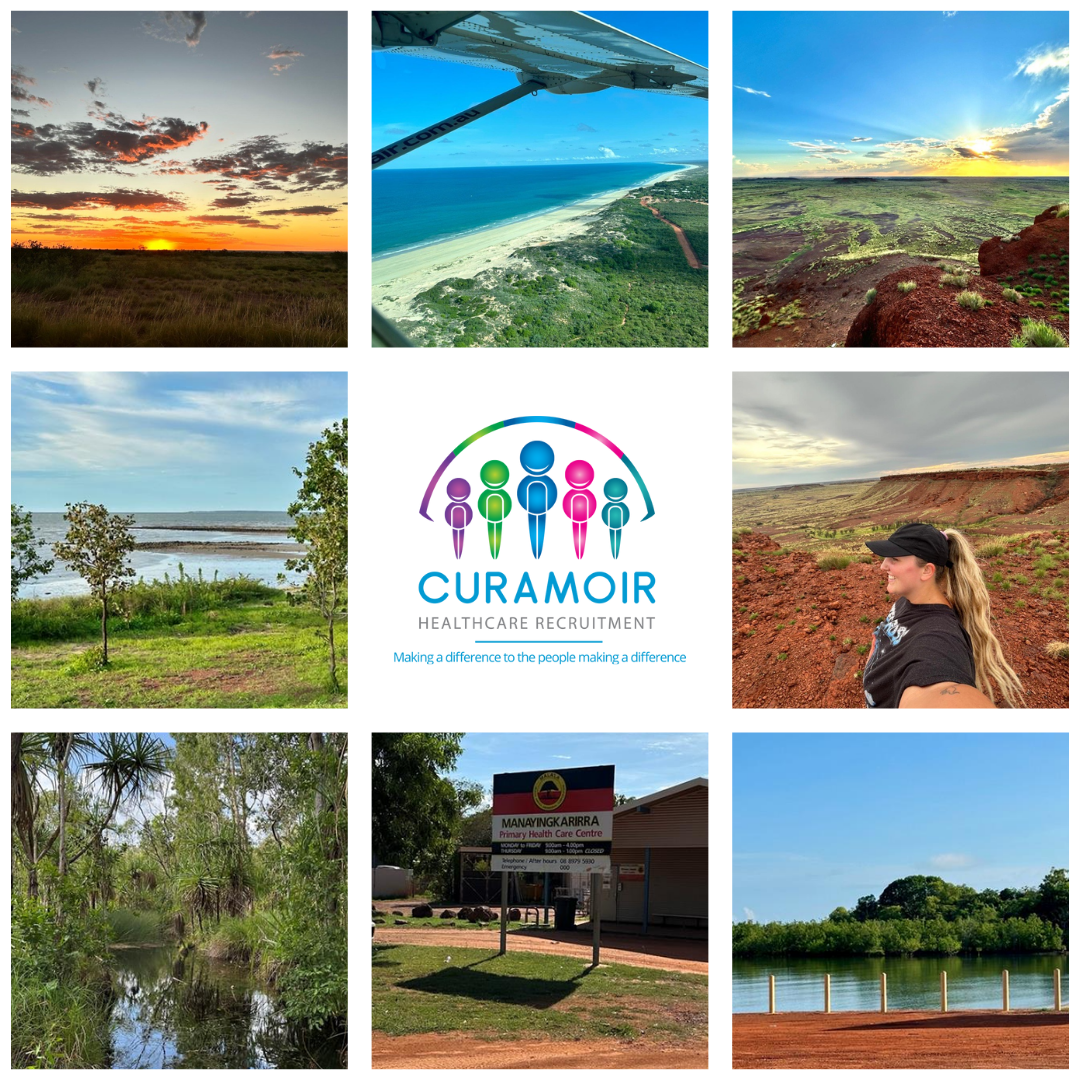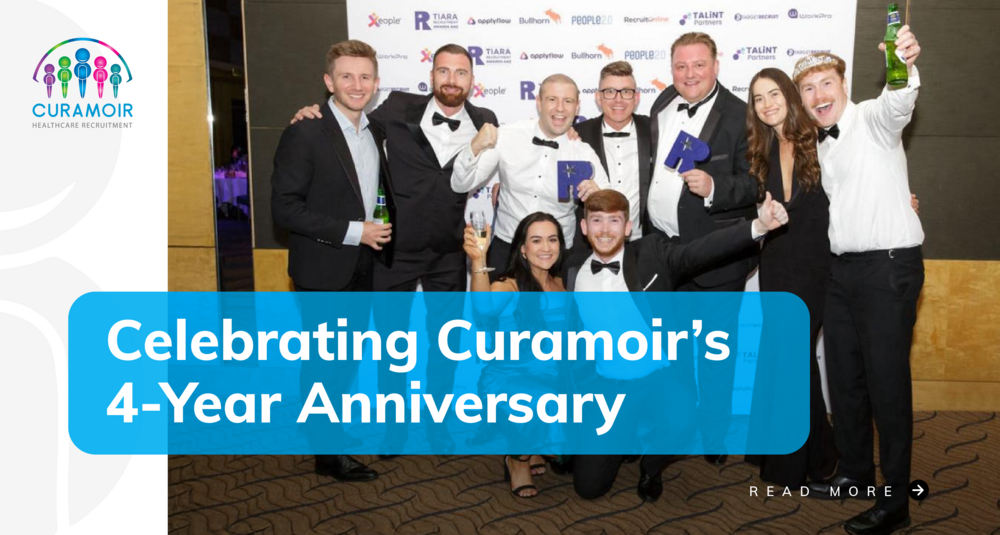Life as a Remote Area Nurse
Donnchadh Lawlor,
Chief Executive Officer

Are you a registered nurse looking for a genuine change of scenery? Are you bored with working in city-based hospital environments? Would you rather spend time seeing a side of Australia that others only dream about? Remote Area Nursing (RAN) could be the career path you’ve always dreamed of!
Here at Curamoir, we’ve assisted many nurses with finding RAN jobs, and many have never looked back! Here is a guide to everything you need to know about Remote Area Nursing – what to expect on the job, how to get qualified, and how to tell if the work is right for you. Let’s jump in.
What is Remote Area Nursing?
If you're a nurse looking for something a bit different – and by "different," we mean working in some of the most stunning and remote parts of Australia – then look no further. Remote Area Nurse jobs are commonly located in the bush and desert regions of Queensland, the Northern Territory, and Western Australia, and they come with plenty of variety and adventure.
RANs often work closely with disadvantaged communities, many of them Indigenous, providing some of the most essential medical care in Australia. They’re also a vital part of supporting members of communities who also do remote work, namely in industries like mining, agriculture, and tourism.
In the world of remote nursing, you’ll often hear the term "specialist generalist" used to describe, which is accurate! Nurses in these roles wear many hats, tackling both acute and chronic conditions.
It’s important to know the difference between remote nurse jobs and rural nurse jobs. In remote nursing, you’re working in communities of just a few thousand people, with major hospitals hundreds or thousands of kilometres away. With rural area nursing, you’re working with relatively larger remote communities, travel distances are smaller, and there is more access to a range of medical support (emergency, general practice, etc). This Royal Flying Doctors Service guide to rural and remote is a handy visual explainer of the geographical distances.
The Perks of Remote Area Nurse Jobs
Aside from the chance to make a real difference in local communities, remote area nurse jobs also come with attractive benefits.
Awesome travel opportunities and work-life balance
One of the biggest reasons nurses choose RAN work is the amount of freedom they get to travel and the sense of adventure that comes with working in the outback. With contracts lasting 4-12 weeks at a time, you’re able to balance hard work with plenty of time for exploring Australia’s vast landscape, including beaches, bush, mountains – whatever you’re into!
Your adventure will actually start when you’re travelling to your contract location. Depending on where you’re heading, you could find yourself on the open road, taking in the beauty of Australia’s wilderness or flying on a light aircraft over the bush to get to the remote community you will serve.
High hourly rates
Due to a chronic shortage of Remote Area Nursing professionals, hourly rates of remote nursing work in Australia are very competitive.
Hourly rates of remote nursing work in Australia are much higher than city jobs, especially with on-call allowances and overtime on top. Pay rates for Remote Area Nurses can range from $75 to over $100 per hour, plus penalty rates for any shift work, allowances for being on call and overtime rates for callouts.
Subsidised living expenses
Plus, many remote nursing roles come with free or subsidised accommodation – a big relief for those used to paying city rent! In many cases, utilities and travel allowances are also provided.
A Day in the Life of a Remote Area Nurse
Many nurses love RAN work for the sheer variety it brings. You’ll have opportunities to connect with patients in ways you can’t in metropolitan workplaces.
Most RAN jobs are centred on Emergency and Critical Care, so you’ll be rostered on call in a clinic. Another focus of RAN jobs is delivering Primary Health care, along with preventative care (e.g. health promotion & community engagement).
As a remote area nurse, you’ll often be working solo or with a very small team, so you’ll need to be quick on your feet and confident in your skills. After all, you might be the only healthcare provider for many kilometres around.
Unlike metropolitan hospitals and clinics, where you can rely on multidisciplinary teams for support, as a RAN, you’ll have to wear more than one hat. The more remote you are, the more likely you will be providing more types of care.
A Glimpse into Remote Area Nursing
Here are images shared by passionate nurses we've supported in these roles:

How to Get Started as a Remote Area Nurse
- At least 3 years of experience working as a nurse, with at least one year working in a Primary Health setting
- Unrestricted AHPRA registration
- Qualifications specific to remote area nursing (outlined in the next section on courses)
- The right to work in Australia
Choosing a Remote Area Nurse Course
To qualify for RAN jobs, you will need to complete remote area nurse courses that cover all the essential skill requirements for remote nursing. CRANA, the peak body for remote area nursing, has a range of resources to help you familiarise yourself with working in isolated areas.
You can start with CRANA’s free essential knowledge introduction, available here.
Following that, the following remote area nurse courses will get you qualified for most roles:
- Remote Emergency Care (REC): This course equips you with the skills to handle emergencies and deliver safe, high-quality healthcare in isolated and remote areas.
- Maternity Emergency Care (MEC): Designed specifically for rural and remote healthcare settings, this course trains you to manage emergencies involving pregnant women, new mothers, and their babies.
- Pharmacotherapeutics: Offered by the Centre for Remote Health, this course focuses on the safe and effective use of medications, including understanding their risks, benefits, and appropriate application.
- Immunisation Course: Nationally accredited by Health Education Services Australia (HESA), this course trains you in the proper and safe administration of vaccines.
- Advanced Life Support (ALS): Building on Basic Life Support (BLS), this course enhances your ability to manage critically ill patients, including handling cardiac arrest and other life-threatening situations in isolated settings. Earning certifications like REC, MEC, and Pharmacotherapeutics can significantly boost your career opportunities, particularly when applying for nursing agency roles in rural and remote parts of Australia.
Get a Discount
For more information about these courses, get in touch with our education partner, Bledisloe Medical, who provides a range of remote area nurse course options. By signing up with Curamoir, you can also enjoy a discount on remote area nurse courses offered by Bledisloe Medical. Get in touch with us today to find out more!
Advice for Working in Remote Area Nurse Jobs
As RAN work is a significant change in the environment and pace from your usual clinical settings, it helps you be prepared. Here are a few tips on getting the most out of remote work nursing jobs:
Focus on your mental wellbeing: As you’re working in isolated environments, far away from friends and family for long stretches of time, prioritising your mental health is crucial. Developing good resilience is key to thriving as a remote area nurse. Learn to recognise the signs of prolonged stress and burnout before they become serious problems. And remember to call someone when you need to talk!
Build a support network and find mentors: Having a mentor to offer guidance, share tips, and provide support can make all the difference. Make friends as much as you can – social connections are especially important for RANs. Find someone in the nursing world who truly inspires you – someone whose career or approach you admire, even if it’s just one aspect of their work. Build a connection, ask questions, and learn from their experiences.
Embrace the Adventure: One of the perks of working in remote nursing is the opportunity to travel to places few people get to see. Take full advantage of it! Explore the local landscapes and soak up the unique experiences that come with working in these incredible settings.
Pack a Little Bit of Home: Staying connected to home comforts can make all the difference in remote areas where phone reception is unreliable! Bring along your favourite books, movies, hobbies, and coffee supplies to make your space feel like your own. It’s those small touches that keep you grounded and less likely to feel homesick.
Learn about the communities you’re serving: Working closely with Indigenous communities, it’s important to understand the socio-economic and historic of their lives. This is vital to building trust and providing culturally sensitive care. It’s about respect, empathy, and delivering better outcomes for everyone.
Find Remote Area Nurse Jobs with Curamoir
If you’re ready for an adventure and a nursing role that’s anything but ordinary, becoming a RAN could be the perfect fit. Australia’s remote areas are calling! Why not explore your options with Curamoir? With offices in Sydney and Perth, we specialise in healthcare and nursing recruitment that puts people first.
Contact us today for more information on remote area nursing jobs. We can help you find placements, attain the necessary qualifications, and answer any questions you have.













